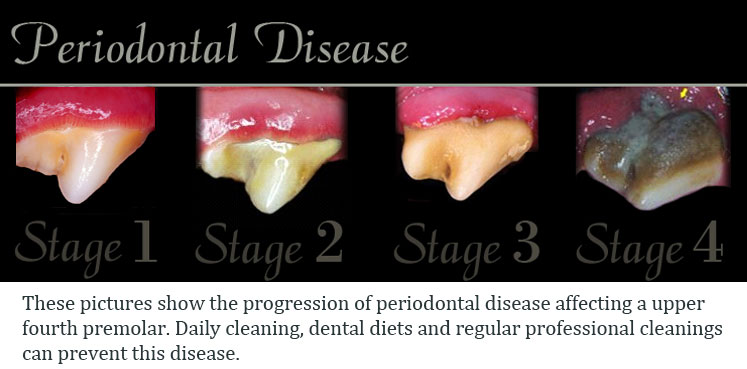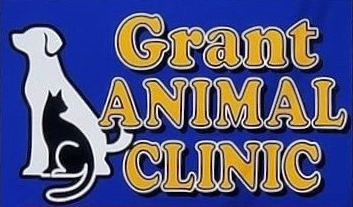
Dental disease is the most common chronic disease in dogs. Unfortunately, dental health is often overlooked by dog owners as a high health priority. At Grant Animal Clinic, we have a strong focus on dental health in dogs given its impact on the overall health of the canine patient and thorough inspection of the teeth and oral cavity is an important component to our physical examination.
Dental disease causes direct pain as the result of deep pockets, root exposure, and root infection. The gum infection that accompanies dental disease known as gingivitis, not only in turn worsens the progression of dental disease, but it also leads to immune system suppression, predisposes to cancer, and can lead to dangerous infections of the blood stream, kidneys, and heart valves.
Over time, bone loss from dental disease and infection of the roots can lead to pathological fractures of the jaw bone itself. Dental disease in the upper arcade of teeth can lead to holes in the nasal sinuses called oronasal fistulas.
They Suffer Silently
One of the common answers we receive from dogs owners when we point out that a canine patient has dental disease is that the dog does not appear to be in pain. On the surface, the client is probably correct that the dog affected with dental disease may not be showing outward signs of pain. This is often because dogs have an innate instinct to hide and internalize signs of pain or weakness. This is why very often following a dental, dog owners commonly see a change in their dog’s overall demeanor, regaining pep and activity, the reduction of which was so gradual that it escaped notice, or was just chalked up to age catching up.
Offensive Breath Is Never Normal
Dog owners often joke that no dog’s breath really smells good. This is most certainly true. Doggy breath is one thing, however, offensive breath to the extent that getting within the vicinity of the dog’s mouth is assaulting to the sense of smell is abnormal. If offensive breath affects your dog, then it is time to bring him/her for a thorough oral examination, as chances are, there is significant dental disease.
Other signs that your dog may be suffering from dental disease include:
- Excessive drooling
- Swelling of the muzzle or just below either eye
- Pain while chewing
- Food or water coming out of the nostrils following eating, drinking, respectively
